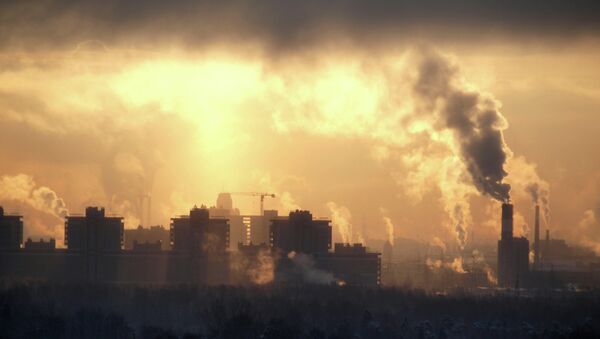MOSCOW, November 2 (RIA Novosti) — Carbon emissions need to be brought down to zero by 2100 if the optimal warming level is to be maintained, a new report published Sunday by the UN's Intergovernmental Panel on Climate Change (IPCC) stated.
“To keep a good chance of staying below 2 degrees Celsius, and at manageable costs, our emissions should drop by 40 to 70 percent globally between 2010 and 2050, falling to zero or below by 2100,” Rajendra Pachauri, Chair of the IPCC said in the Synthesis Report, adding that it was a “window of opportunity”.
According to the report, 0.6 percent of the world gross domestic product will need to be annually contributed in order to achieve this target.
Owing to human influence, continued emissions of greenhouse gases will cause further warming and produce long-lasting changes in the climate system, while posing a higher threat to less developed countries and vulnerable communities, the report said. Currently, carbon emissions stand at their highest levels in the last 800,000 years.
The report also highlights that the changing climate patterns can already be witnessed. “Some of those changes have been linked to human influences, including a decrease in cold temperature extremes, an increase in warm temperature extremes, an increase in extreme high sea levels and an increase of heavy precipitation events in a number of regions,” the report read.
Meanwhile, the report produced by over 800 scientists over the 13 months, making it the most comprehensive assessment ever made, was presented by UN Secretary-General Ban Ki-moon Sunday at Copenhagen.
"I have seen for myself, those rapidly melting glaciers,” Ban Ki-moon said in Copenhagen as quoted by BBC, adding that he wanted to add his word to that of the scientists as a “common man”.
In reference to the previous IPCC report approved by 195 countries in 2009, Ban Ki-moon said that the countries were not “fully ready” but now “we have been building up”, as quoted by the news outlet in a live coverage.
The IPCC is the leading international body for the assessment of climate change established in 1988, to provide the world with a clear scientific view on climate change and its potential environmental and socio-economic impacts.

